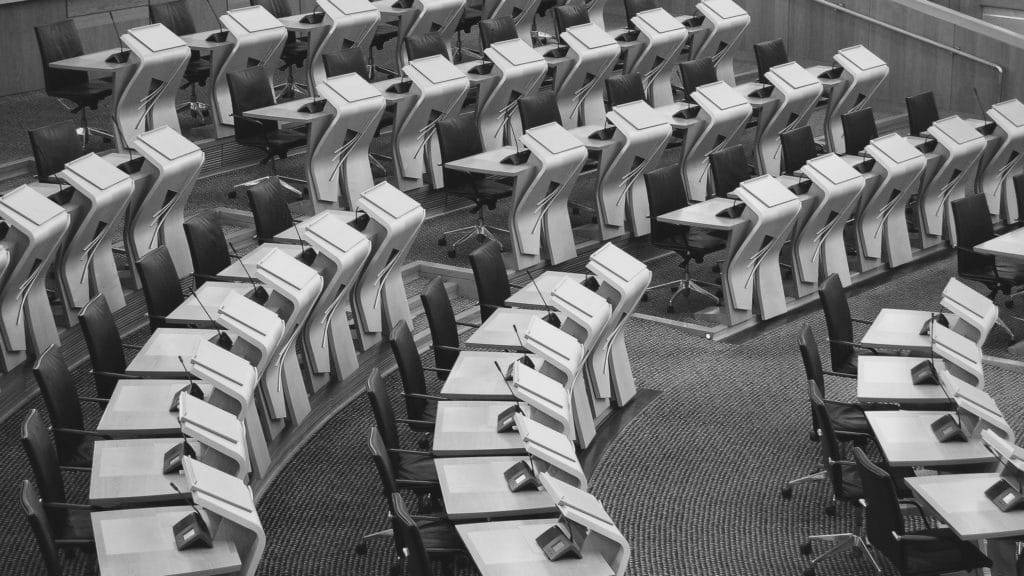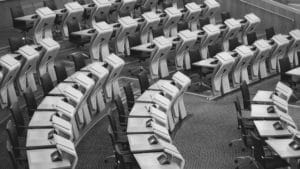Following our blog looking at each party leader’s FMQs choices over the last year, this one takes an in-depth look at opposition debates.
These debates give opposition parties a chance to set the agenda and land some hits on the government, so they what they choose should be revealing. Who was banging on about independence? Which party was most interested in housing? What was the most popular topic? The answers might surprise you…
- Opposition parties focused on two main areas – health and finance. Finance was more popular in the first half of the parliamentary year, driven by the budget process and the Scottish Parliament’s first ever tax changes, while health became more prominent in May and June.
- Perhaps surprisingly, the Conservatives spread their time evenly across a range of areas, holding debates on housing, justice, health, finance and education. Ruth Davidson has previously spoken of her wish to see the party address issues traditionally seen as off-limits for the Conservatives, so this is evidence of this approach in practice.
- Labour, in contrast, focused almost entirely on finance and health, with seven of their eight debates on these topics.
- The only opposition party to initiate a debate on housing was the Conservatives, who held two, both on property factors.
- Neither Labour nor the Conservatives covered transport; the only debates on this came from the Liberal Democrats and the Greens.
- The only opposition party to schedule a debate on the constitution was the Liberal Democrats, who led an end of year debate on the SNP Growth Commission.
The other striking takeaway was the SNP’s dominance of the Parliament – even when it comes to opposition debates, the government usually gets its own way. On most occasions the SNP had the numbers to take the sting out of critical motions. If this failed, they could vote it down.
On the rare occasion when an opposition motion unamended by the SNP was passed – just four, to be precise – this was because it didn’t oppose the final vote, either abstaining (on raising income tax, on mental health services, and on Orkney and Shetland ferries) or, in the case of a motion on the budget process, because a Green amendment had removed criticism of the government.
The other striking takeaway was the SNP’s dominance of the Parliament – even when it comes to opposition debates, the government usually gets its own way. On most occasions the SNP had the numbers to take the sting out of critical motions. If this failed, they could vote it down.
The Data
In this parliamentary year, Holyrood’s four opposition parties held a total of 23 debates over 16 afternoons, with each party receiving a number of afternoons in proportion to their parliamentary representation.
The eagle-eyed among you will have spotted that the Liberal Democrats received more debating time than the Greens, despite having fewer seats. The two smallest parties share three afternoons on a 2:1 split that rotates every year – this year the Greens were the unlucky ones. The two smallest parties consistently held two debates in every afternoon they were given – effectively doubling the issues they covered.

The table below breaks down each opposition debate by party, subject and outcome.

To finish, a few caveats about how each debate has been classified: Cabinet level positions that cover two distinct policy areas, such as Finance & Constitution, have been split into two. Housing, which technically sits in the super-portfolio of Communities & Local Government that covers everything from human rights to elections, gets its own category because it doesn’t fit neatly in communities or local government. Finally, FOI is in a category of its own because it only came up once and there’s no obvious place to put it.




